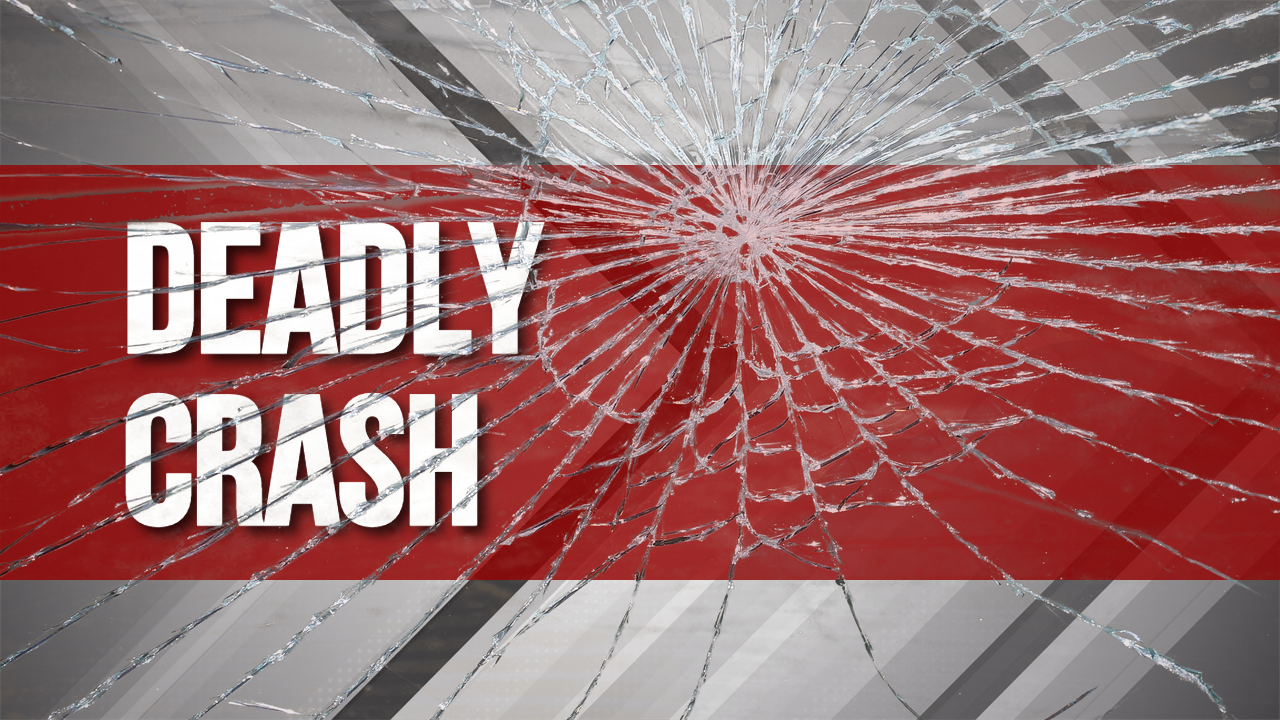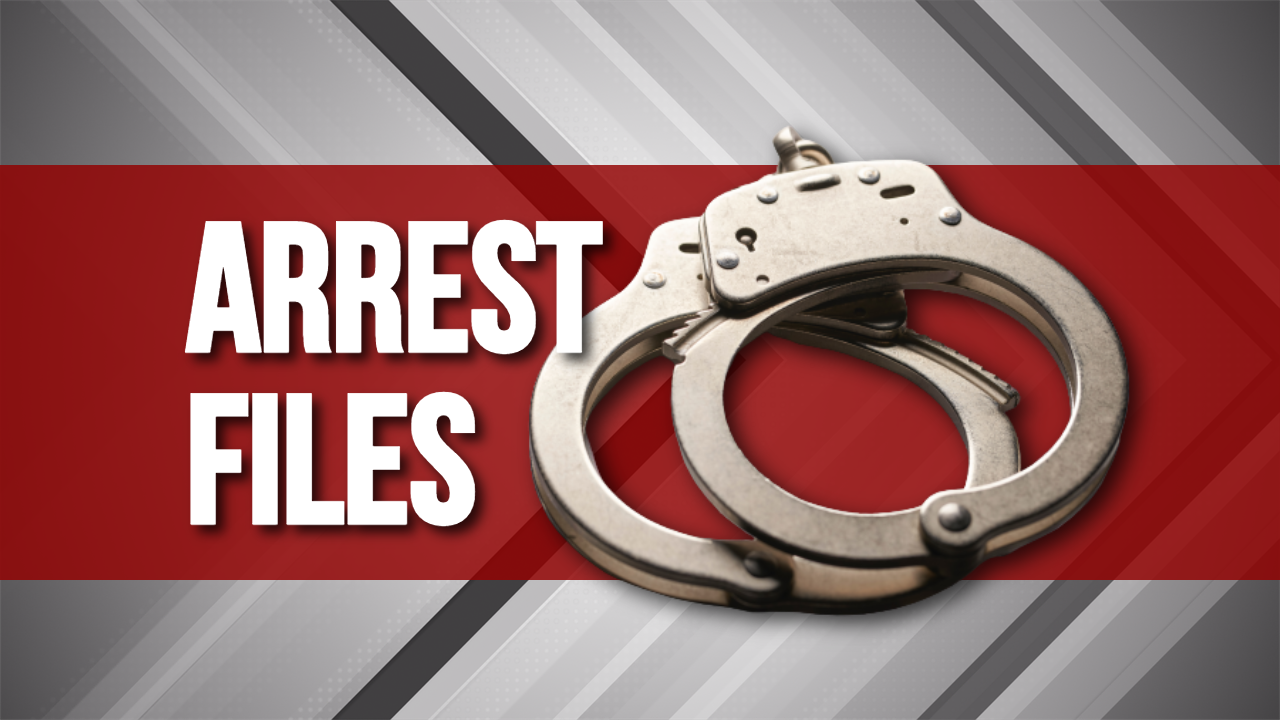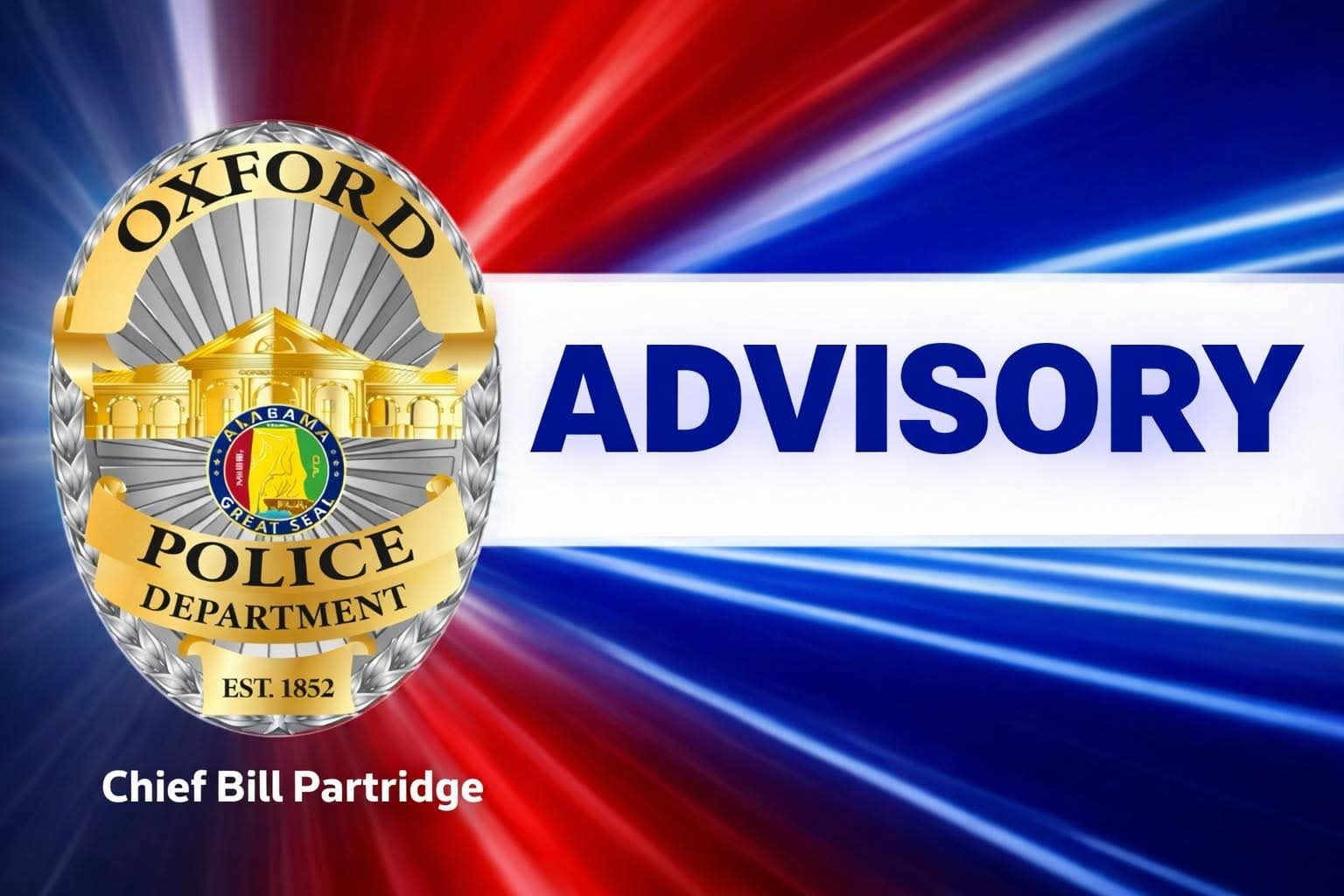We Cannot Afford to Forget: Lessons of 9/11 and the America of 9/12
By: Tony Hathcock
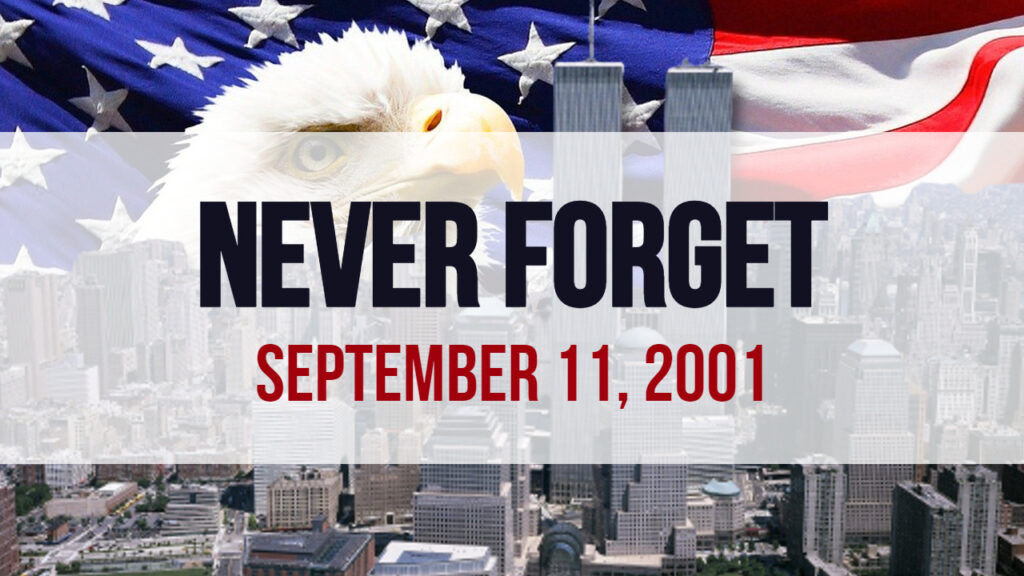
Today, we remember.
To most who were living, it would be difficult to forget. Most who were alive on September 11th, 2001, will never forget where they were when terrorists took a cheap shot—too cowardly to strike a military target, they went after civilians and children going about a completely normal September day.
I was on a hike with a friend who was passing through from out of town. She had stayed in Birmingham the night prior and left out early in the morning so that we could do a quick sunrise hike and breakfast before she continued out west. When I got home, I turned on the television, only half paying attention to the screen. The second tower had been struck, but both were still standing, and footage was playing showing the second plane—converted into a weapon by extremists with hearts filled with hate—disappearing into the side of the skyscraper.
My mom often watched religious TV channels, and at first, I thought it was some type of “Left Behind” show. Then I went to turn the channel. That was when I began to understand what was occurring.
I have heard many people express the range of emotions they felt that day. Most, I believe, felt shock, confusion, and disbelief initially. That would turn to grief, helplessness, and fear for some. People process things in different ways, so I guess the experience was unique to all of us. I honestly do not remember much of what I felt first. From my recollection, it was mostly a numbness, until it turned to anger. That is what I remember most about that day—the anger.
At the time, I was serving as a paratrooper with an Army Special Forces Unit, working in the Military Intelligence Division. It was not long before the phone rang. It was a standard call: be ready, have things in order, and be reachable. I knew things were about to change. Those of us in the service had been training in a peacetime military. Obviously, that was about to be a thing of the past. I knew the direction of my life was about to be set on a different path within minutes of the realization of what was occurring.
That night is what I remember the most clearly. A group of us gathered at the altar of my church to pray. I had never found it difficult to pray before—not at that altar, which had always been a place of peace and comfort. But as I tried, all that would come out was anger. I prayed for the opportunity to do something about it, and that prayer would be answered soon enough. In some ways, I think that was healthier for me, knowing that I was in a position where I would be able to take some form of action in response. Many wanted badly to, but were not in that position or lacked the ability to do so. I could see how that led to a sense of helplessness for some.
There were not many people in the country whose lives did not change or were not impacted in some way. The way we travel is still impacted. The way our intelligence agencies work and communicate is still impacted. The way people see the world is still impacted today. Many lost loved ones that day—coworkers, children, neighbors. Not just people from New York, but all over the country. All over the world.
We saw an irreplaceable loss of first responders who ran in to save people, many with the knowledge that as they climbed those stairs into a jet-fuel-fed inferno, they would not be walking back down. They knew. They knew their job had become to get as many out as possible before the structure weakened and their initial grave would be at the bottom of the buildings when they came down. They knew their brothers and sisters would be coming to retrieve what was left of them. That is a special breed of person—one who does not deserve to be forgotten for what they did every day, but especially on that day. On September 11th.
As I began writing this, it was on September 10th. I think when we look back on the events of 9/11, we forget about two dates: September 10th, as well as September 12th and just beyond.
On the 10th, most people were apathetic, blissfully unaware of the evil in the world and the ideology that would prefer to see us as Americans cease to exist. We were too worried about being divided amongst ourselves—fighting about politics, religion, political correctness, and anything else we could find to bicker about. Patriotism and faith were unfashionable to far too many. World events were the last thing on most people’s minds. The fact that some man named bin Laden and his followers in caves across the world had been plotting to murder us by the thousands was not a thought in many people’s heads. We were naive, and we were unprepared.
Following the attacks on the 11th, that changed. Starting on the 12th, people picked up their Bibles. You could not find an American flag on the shelves of stores. We quit fighting each other, and we banded together to face a real and common enemy. The small things didn’t matter. We had a war to prepare for, and we had to ensure it did not happen again. The September 12th America was a good America. A great America. While it was a tragic time, and a time of grief, it brought us together in a way nothing else could have. Surely, that would last.
Unfortunately, like most emotionally driven concepts and ideas, many do not remember that September 12th America. If one were to ask why, it is because many have forgotten. They have forgotten what it is like to be unified, to feel the necessity to band together and hold hands. To pray. To love. To stand up for ourselves.
We have forgotten those lost that day, and allowed their memory to fade, to where it no longer motivates us as a country. Kids are graduating college who were not even born on that horrific day. Many do not understand the gravity of the impact it had on us as a country, or why so many were willing to volunteer to die for that day—or to be put in a position to take a life, for that matter.
I have heard some say it is better to forget. To move on. There could be nothing I disagree with more strongly. We should always honor those lost that day, both as innocent victims and those who willingly chose to make the ultimate sacrifice for others. We should remember the heroic stories that came out of such a generational tragedy—the men and women who stood up and put their own desire to continue breathing aside in order to bring comfort and life to strangers and neighbors.
We should remember that we are not an invincible nation, but that complacency, pride, and incompetence can have serious consequences. If we forget, we open ourselves to it happening again. I say we cannot afford to forget. The memory of those who were lost on that day, and those who perished from disease contracted in the aftermath, as well as those who died taking up arms in response, demands we remember.
I had the opportunity on multiple occasions to visit Ground Zero and pay my respects. The first was prior to deploying to Afghanistan in response. We traveled together as a unit, up from Fort Dix, New Jersey. New Jersey State Police escorted us to the tunnel, and New York State Troopers picked us up as we crossed into their jurisdiction. They escorted us straight to the very center of Ground Zero.
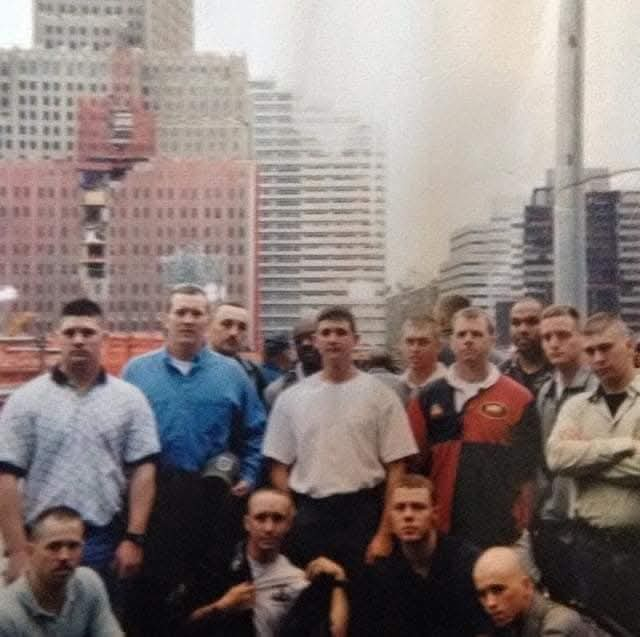
At that time, recovery operations were still ongoing. Workers were hot-cotting in nearby buildings—sharing cots, pews, benches, or pallets on the floor between what had to be strenuous and heartbreaking shifts. These people had traveled from all over, simply to ensure a proper farewell and burial for their fellow Americans. The Ground Zero cross that survived was still standing watch over the temporariy resting place of the victims.
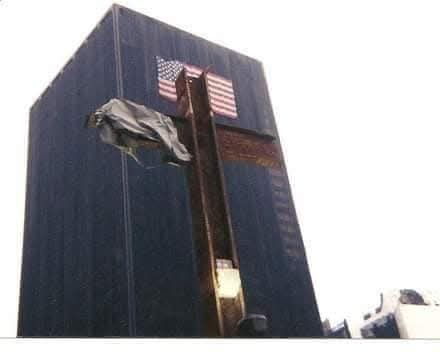
Firefighters opened up and escorted us to the barracks of those stationed at the Trade Center, who had lost their entire shift. Their dress uniforms were folded neatly, and at the foot of each bed sat a formal 8×10 portrait of the fallen in uniform. Until then, that honor had been reserved only for fellow firefighters.
We also toured St. Paul’s Chapel, where President Washington once worshipped at his inauguration. Everything around it had been damaged, yet the chapel itself was spared. Workers were sleeping in the pews as we quietly walked through, and we were offered the opportunity to be prayed over before shipping out.
As we walked the streets, hard-looking New York construction workers, police officers, port authority officers, and firefighters stopped us. They slapped us on the back, hugged us—often with tears as big as their hearts in their eyes—and told us in thick New York accents to “Go get ’em,” often with more colorful phrases mixed in that I cannot print, but will never forget. These people deserve to be remembered too.
We need not remember just for them, though, but for us as well. It would do the country good to return to a 9/12 mentality. It should not take another attack, or another disaster, for that to happen. It should simply take us keeping that memory alive and well—not just in us, but in our children.
I have found it difficult when this date comes to find the words, in an age-appropriate manner, to fully describe to my daughters what happened that day and the impact it had on our nation and on me personally. I believe it is important, though, that we strive to do so, and to relay what our country was like in the days following. To remind them how important our first responders, medical workers, servicemen and women, and all others who sacrifice so much to put others before themselves are.
I think it is important they keep their Bible as a constant guide, and that they respect our flag and what it stands for. I pray they will never see another 9/11, but against all odds, I hope they will one day live in another 9/12.
Take a moment to reflect today, and to remember. We would love to hear your stories. I know there are local people who answered the call and rushed to Ground Zero. Some knew people at the Pentagon. Many answered the call to arms. I know many of you remember where you were, and how it impacted you. Feel free to comment on our social media post and share your story, or honor those you wish to.
We cannot afford to forget.


